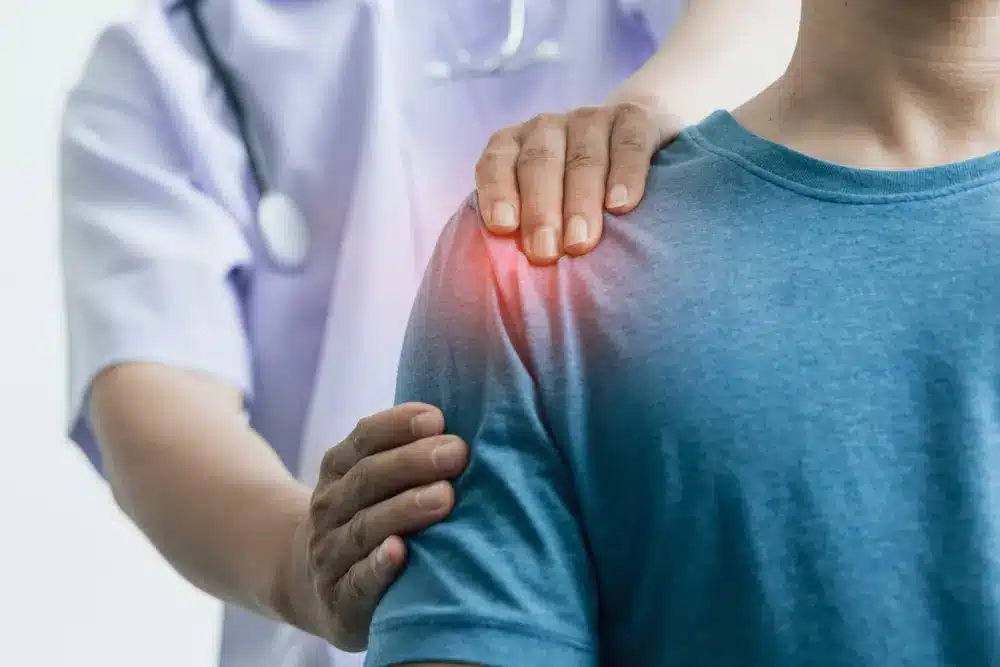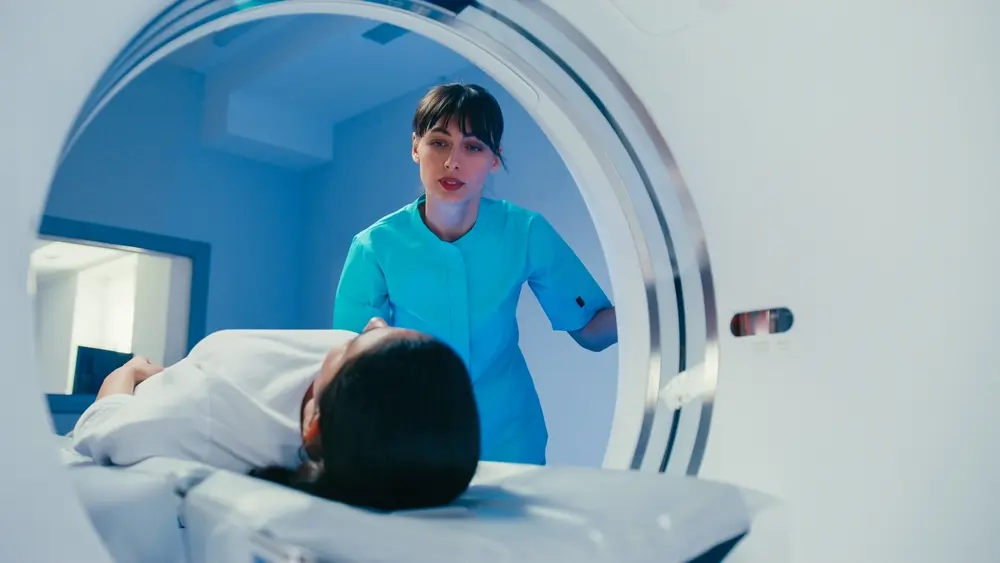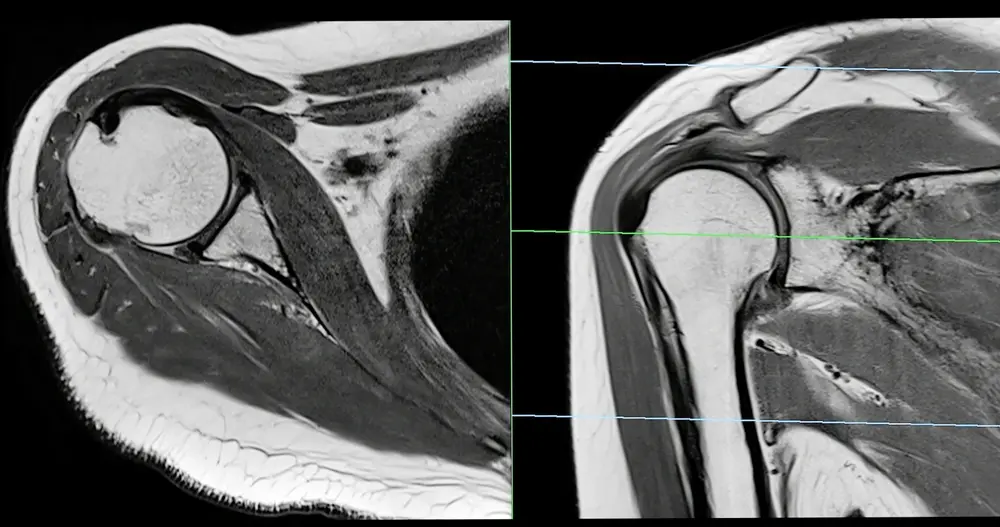Shoulder and knee pain are some of the most disruptive types of pain you can experience after a crash. If your job involves physical work, an injured shoulder or knee makes even simple movements difficult.
The other problem with these injuries is their inability to heal without proper treatment. The longer you wait, the longer recovery takes. Swelling and scar tissue start to form, locking joints and creating stiffness that limits motion.
If you want to get back to work and live without pain, start by understanding your injury. The best way to do that is with professional MRI services in Brooklyn, NY. At City Wide Radiology, a shoulder MRI or knee scan shows what’s really going on inside your body so your doctor can treat the cause, not just the pain.
In this blog, you’ll learn what causes shoulder and knee pain, the MRI process, and why City Wide Radiology remains the best imaging center in Brooklyn for these types of injuries.
MRI for Shoulder Pain

According to OrthoInfo, each year, more than two million Americans seek medical care for shoulder joint pain caused by work, sports, or crashes. The following list describes common ways people injure their shoulders:
- Rotator cuff tearing: Your rotator cuff is a collection of muscles that add stability to the joint of your shoulder. When torn, it causes sharp pain and weakness as you lift or rotate your arm.
- Labrum tears: A labrum tear occurs when the ring of cartilage that stabilizes the shoulder separates after a sudden impact. This injury often causes clicking or popping sounds.
- Tendonitis: Overusing a joint inflames tendons and limits the range of motion.
- Dislocation or fracture: Collisions or falls can pull the arm bone out of its socket or fracture the shoulder blade.
- Soft tissue strain: Overstretching muscles during heavy lifting or impact causes lasting soreness.
It’s not always easy to pinpoint the exact moment of injury, but if these symptoms sound familiar, schedule an MRI at City Wide Radiology to gauge the extent of the damage and start recovery.
MRI for Knee Pain
If 2 million shoulder injuries per year sound high, AAFP reports that more than 4 million people in the United States seek treatment for knee pain every year. The knee carries full body weight and absorbs much of the impact during a crash, making it prone to harm.
- Ligament injuries: The ACL and MCL control stability. Twisting or direct impact can tear them and cause immediate pain.
- Meniscus tears: Torn cartilage between the bones makes bending painful and causes locking.
- Fractures: Impact against the dashboard or ground can crack the kneecap or nearby bones.
- Tendon injuries: Overuse or trauma inflames the patellar tendon and weakens the joint.
- Fluid buildup: Swelling inside the joint adds pressure and stiffness.
- An MRI for knee injuries reveals internal tears and misalignment that X-rays miss.
The Benefits of Getting a Professional MRI Exam To Treat Your Knee or Shoulder Pain
According to the journal Science, knee and shoulder pain rarely heal on their own, and working through the pain only makes things worse. An MRI from City Wide Radiology shows exactly what’s injured so you can start treatment.
Understand the Full Extent of Your Injury
Magnetic resonance imaging shows detailed pictures of bones, ligaments, and soft tissue that X-rays cannot detect. A shoulder MRI or knee scan reveals hidden swelling and small tears that limit movement.
Prevent Long-Term Joint Damage
Untreated injuries weaken joints and reduce motion. An MRI for shoulder pain or knee injury identifies early changes before they turn into permanent damage. Each MRI exam provides clear, detailed images that your doctor uses to design an effective recovery plan.
Patients who feel anxious in confined spaces can request an open MRI for added comfort during the procedure.
Get Expert Care Close to Home
City Wide Radiology uses precise imaging and skilled radiologists to find the smallest injuries that other places miss. The MRI Brooklyn, NY, team follows strict standards for accuracy and delivers clear results your doctor can rely on for treatment.
What Happens When You Make an Appointment With City Wide Radiology?
When you schedule an appointment, City Wide Radiology guides you through every step so the process feels clear, comfortable, and straightforward.
Our Experienced Staff
Every technician and radiologist at City Wide Radiology completes specialized training to identify ligament, tendon, and cartilage injuries in your scan.
The MRI Process for Shoulder and Knee Injuries
When you arrive at City Wide Radiology, the technologist greets you and explains each step before the scan begins. You’ll change into metal-free clothing or a gown to prevent interference with the magnets.
The staff positions you carefully on the table and places supports to keep your shoulder or knee steady. They communicate through an intercom during the scan, checking that you remain comfortable and still. Ear protection reduces the noise, and the team monitors your progress the entire time to make sure the images come out clear.
What Happens After Your Scan
After your scan, radiologists review the images and send a detailed report to your doctor. Your physician uses that information to create a recovery plan that relieves pain and restores movement.
Stop Living in Constant Pain and Call City Wide Radiology for a Professional MRI Scan

Stop letting pain control your life. Schedule a shoulder MRI or knee scan at City Wide Radiology to find the real cause of your pain. Our doctors accept most insurance plans, including workers’ compensation, no-fault, and PIP (personal injury protection). Want more info? Check out our other blog post on the types of MRIs.
Call (718) 236-6800 today to book your scan and start recovery.
Frequently Asked Questions
Do MRIs Use Radiation?
No. MRI uses magnetic fields and radio waves instead of radiation.
How Long Does an MRI Take?
Most shoulder or knee MRIs take about 30 to 45 minutes.
Can I Move During the Scan?
Movement blurs images, so remain still until the technologist gives instructions.
What Should I Wear for My Shoulder MRI?
Wear loose, metal-free clothing or the gown provided by City Wide Radiology.

